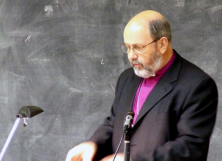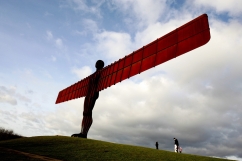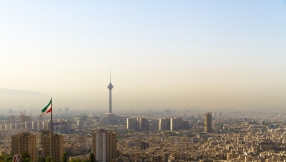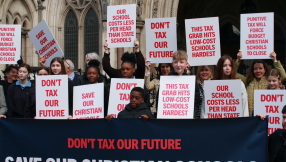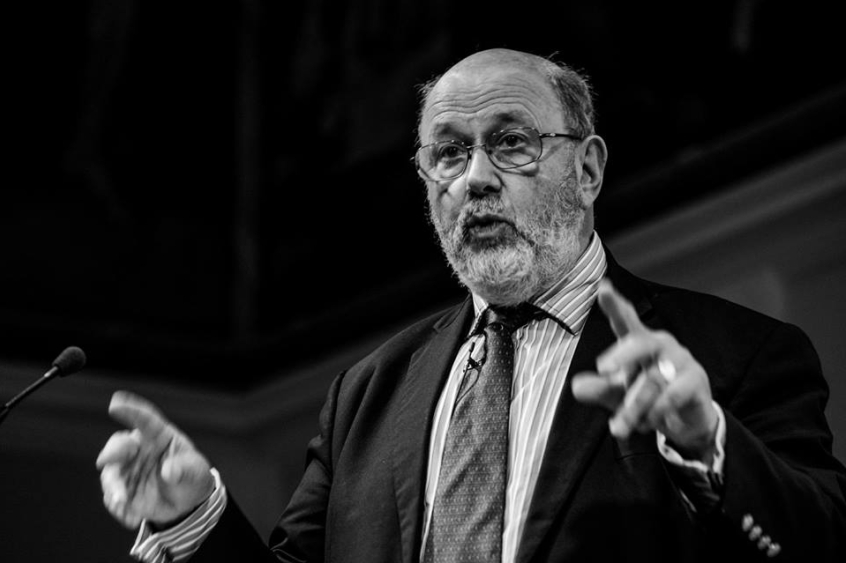
Tom Wright made his name as a theologian with his groundbreaking work on Paul. His New Testament study – especially his call for Christians to read what the Bible actually has to say about heaven – has been highly influential in the last two decades.
Yet Wright is also a cultural commentator of some distinction, and this week he turned his attention to how the Church and the media should relate to each other. Speaking at the Church and Media Conference in London, Wright used the occasion to challenge both.
In his keynote address the former Bishop of Durham made four points. Firstly he said, "God wants the world to be wisely ordered through human agency... God is the working-through-humans God, and human authorities whether they know it or not have the noble vocation of bringing God's wise order into the world. The corollary of this, equally clear in scripture, is that God will hold people to account for their stewardship of these vocations; and that holding-to-account, which will one day be clear and complete, must happen already in the present time."
This role given to human kind is an essential part of God's plan, he argued. In other words – if there are things wrong with the world, we can't just 'leave it up to God' to resolve them – but we have a responsibility to get our hands dirty and be agents of God's transformation.
Wright's second point helps us to realise that although humans have been given that important task, we really shouldn't get ideas above our station. We are not God. "Jesus declares that all authority in heaven and on earth has been given to him" Wright said, "so that all other authority, whether the so-called 'authority of scripture' on the one hand or the authority of political leaders and rulers on the other hand, must be understood as in some sense delegated authority."
What happens, then, if political rulers mistake their own role for that of God? Thing go wrong very quickly. According to Wright, one prime example is the 2003 US-led invasion of Iraq. "We have seen in recent decades some disastrously naïve experiments in messianism," he said, "in which rulers suddenly discovered that there was this thing called 'evil' out there in the world and thought that they could deal with this 'evil' by dropping bombs on it."
Wright's third argument speaks directly to the role the media play in shaping our society – and how the Church should be active in the same area.
"The media really do have a vocation... of speaking truth in the public square in a way which can shine an unwelcome light on rulers and their follies," he argued. "But the church, too, has its vocation of speaking the truth to power, which goes all the way back to Jesus' argument with Pontius Pilate in John 18 and 19 and Paul's arguments with the Roman officials in Philippi in Acts 16 or with the chief priests in Jerusalem in Acts 23."
The St Andrews-based academic said this can lead to tension between the Church and the media. "Many journalists in our own day strongly believe that the church has no place in the public square, or only a small circumscribed place called 'religion', carefully screened off from everything else; and they believe that the job of holding rulers to account (or indeed of commenting on many other aspects of public life) belongs to the media only."
Wright suggested this has led to certain sections of the media trying to replace the role God has given the Church: "we are warned off the patch by secular journalists who have appointed themselves as not only poets and philosophers but also as high priests of our culture."
In a room full of journalists, who may have thought of themselves as the only bulwark against political wrongdoing, it was a helpful reminder – that God gave a role to the Church. Yet it isn't without controversy – those secular journalists who have tirelessly exposed wrongdoing, from Watergate to the MPs expenses scandal have undoubtedly been doing good work.
The final point Wright raised looks towards a better future where the Church recaptures its prophetic role. He suggested that Christians must speak with confidence into the public square. "The church has to recapture the art of Spirit-led, wise critique, speaking truth to power," he said. "The Church needs to make space and time, and Christian journalists need to make space and time, prayerfully to work together so that the different kinds of critique which we both must bring may be clearly and properly articulated."
It's what we try to do here at Christian Today and many other believers working for secular and Christian publications are doing the same. Still, Wright's words are a call for us to renew our vocation, for the good of the Church and the world.










